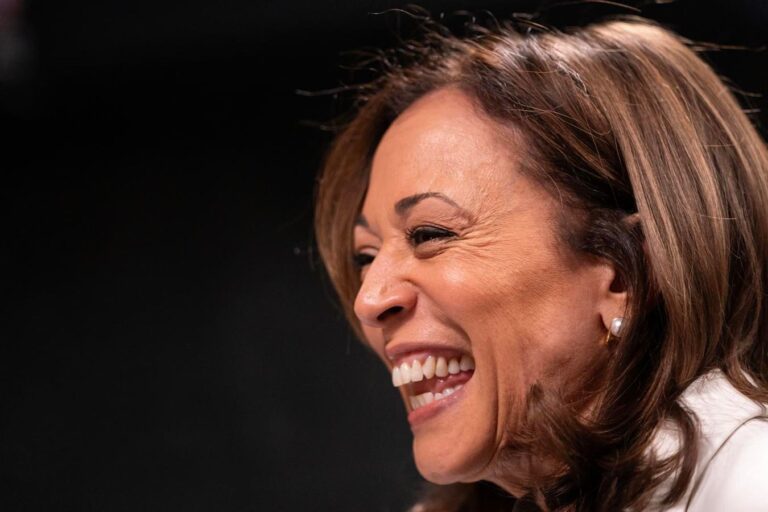Vice President Kamala Harris’ charismatic laugh has enhanced her national popularity and political success. … [+]
For every five photos of Vice President Kamala Harris on the Internet, at least four show her laughing. Harris’ laughter has been a well-known part of her personality, but it has become a hot topic with the upcoming election. Recently, former President Donald Trump criticized Harris’ laughter, calling her “Laughing Kamala.” While the remark was not well received by voters, it sparked a debate about the impact of the Democratic presidential candidate’s constantly joyful demeanor.
Laughter may be the best medicine, but when it comes to politics, new research suggests that laughter may also serve a more complex purpose: In the often tense and charged world of politics, where every action or inaction is roundly criticized, politicians’ laughter can be a surprisingly effective tool.
The power of humor and charm in politics
Recent studies have shown that humor, charm and courage are among the traits that contribute to political success and public support, and Harris, known for her charismatic laugh, has an infectious personality that could help her connect with voters skeptical of her 2024 presidential bid.
US Vice President Kamala Harris takes to the stage at the Global Black Economic Forum. … [+]
According to Bill Jones, former emeritus professor of politics at Liverpool Hope University, humour plays a key role in political success.
“We can forgive a good laugh and it could be said that Boris Johnson’s style of politics relied heavily on his ability to entertain the electorate, and in doing so he prevented politics from becoming as boring as most people thought it would be,” Jones said.
Research on charisma and public acceptance
A study from Arizona State University analyzed 350 speeches by 50 US governors from February to May 2020, when the COVID-19 pandemic was at its peak. The researchers coded the speeches for their level of charisma and found that higher levels of charisma had a greater impact on public behavior. Specifically, governors who displayed more charisma in their speeches were more likely to comply with requests for citizens to stay at home.
The effectiveness of charm and humor in capturing voters’ attention dates back hundreds of years to ancient Greece and Rome, where powerful orators like Cicero and Demosthenes were admired for their eloquent speeches and engagement. Similarly, past presidents such as John F. Kennedy, Ronald Reagan, and Barack Obama are widely considered to be among the most charismatic U.S. presidents of the past 50 years due to their charm and speeches.
The strategic use of laughter in politics
While humor, charm and charisma are not synonymous with good leadership, they are traits that can enhance a politician’s public appeal and interest among voters. Humans naturally connect with people they like, and a politician’s ability to be liked, especially during election times, can mean more than momentary pleasure. It can also be a strategic tool that can influence public perception and political success. It can also be a mechanism that helps shape a politician’s political journey, making them appear more approachable and trustworthy, especially at a superficial level.
Politicians like Trump have been able to garner support from core voters by tailoring their charisma to suit specific groups of voters who like them.
Harris’ laughter, along with other viral moments, demonstrates how charm, communication skills and charisma can connect with voters. As Election Day approaches, it will be interesting to see which candidates will prioritize charisma as part of their campaign strategies.

